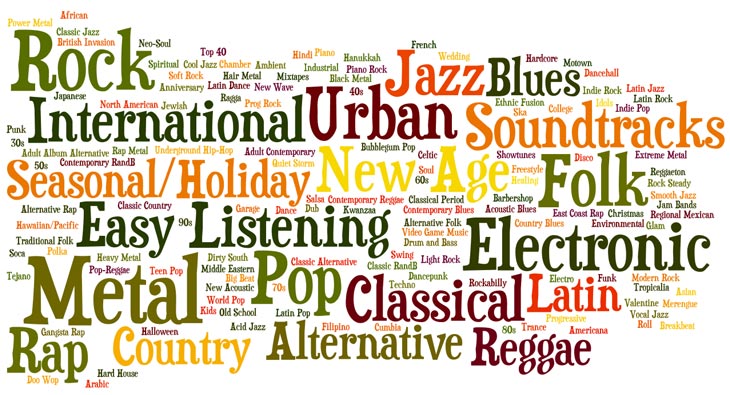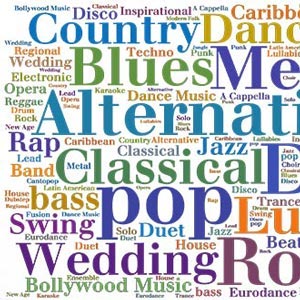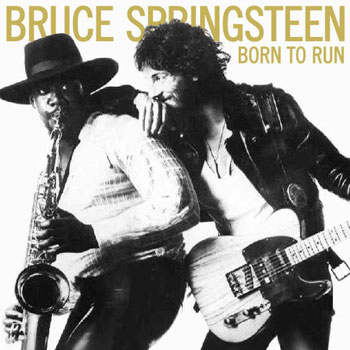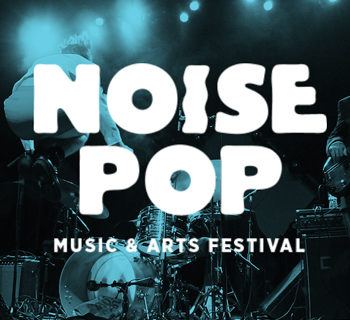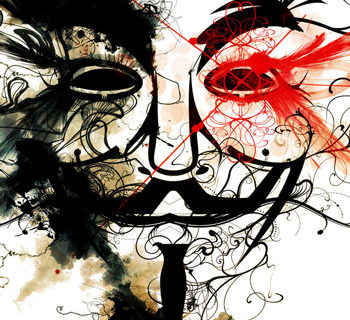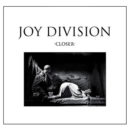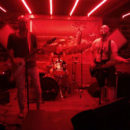Two metalheads walk into a bar. The first notices the other’s t-shirt and asks,“TesseracT? Is that the progressive metal band?”
“As if!” The second metalhead spits, “They’re a djent band.” Looking at the first’s t-shirt he says, “Whitechapel, eh? You like thrash metal?”
“Thrash?” the first shoots back, “What the hell do you take me for? Whitechapel is deathcore!”
Metalhead one tackles metalhead two, and they scuffle on the floor for some time. Suddenly, Black Sabbath’s “War Pigs” comes on the radio, and the two stop fighting.
“Ah, heavy metal,” They both sigh.
Sure, the scene is highly dramatized, but how did so many different subgenres spawn from the same point in less than 50 years? When did metal, itself a subgenre of rock, become its own supergenre? Rather than tracing the lineage of the dysfunctional metal family tree, it may be better to ask, “Why do we have genres at all?”
The short answer is so music behemoths like Billboard or iTunes can easily report on or market music under unreasonably broad collections.
To the artist, however, it’s lazy and even disrespectful to compartmentalize their work in two or three words, but classifying does make it easier to talk about and share musical information and ideas. To borrow a quote from certified Zen monk and punk-bassist Brad Warner’s blog, Hardcore Zen:
“All of our concepts are just maps to help us navigate our way through our day-to-day existence. But maps, by their very nature, must be incomplete. A map that has too many details is confusing and useless.”
Genres, then, are just ways of making sense of the endlessly complex music of the world. If we could map all of music out, the terms “pop” and “alternative” would be the hemispheres; but they don’t tell you anything about the music itself, at least not without relying entirely on the assumption that the opposing term has already been defined.
The Beatles were once “pop,” but can you really compare them sonically or lyrically to Taylor Swift? Maybe you could point out some similarities—song length, the repeating chorus, catchy melodies—but those are found in other genres, even “alternative.”
More confusion comes with the crossover and collaboration between the hemispheres, such as “alternative” songwriter Ryan Adams’s cover of Taylor Swift’s album 1989 in 2015. There is no way to label that without the reader knowing both artists or hearing the music itself.
The genre palette will become much larger, making the job of the critics who label music that much harder. As music continues spreading into distinctive sounds, it’s likely we’ll need the help of machines to catalogue it all
Ingrained genres like “rock” or “electronic” may also soon fall, thanks in part to the streaming services like Spotify and others, which have blown up in popularity within the past few years, completely changing the way people discover music.
Looking at the categories in Spotify’s “Browse” section, for example, we see “New Releases,” “Genres & Moods,” (which includes subsections like “Sleep,” “Party,” and “Romance”). Clicking the “Discover” tab recommends music using an algorithm that analyzes what you’ve been listening to and how often, comparing it with other people with similar interests.
Yes, this rests on the machine understanding the basic, human-labeled genres, but it takes it further, faster than human discussion ever could, with increasingly personal accuracy the more the user listens and the service grows. Eventually, the algorithm may even know someone’s taste better than they do, and recommend accordingly.
Considering how entangled the world has become via the Internet, the broadest of labels, such as “alternative,” “rock,” and “electronic” are becoming increasingly arbitrary and should probably be discontinued, allowing more specific, recently labeled genres like “deathcore” or “dubstep” to become the new roots.
This of course means that the genre palette will become much larger, making the job of the critics who label music that much harder. As music continues spreading into distinctive sounds, it’s likely we’ll need the help of machines to catalogue it all—a prospect as exciting as it is intimidating.

